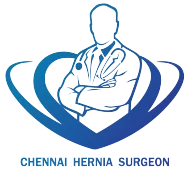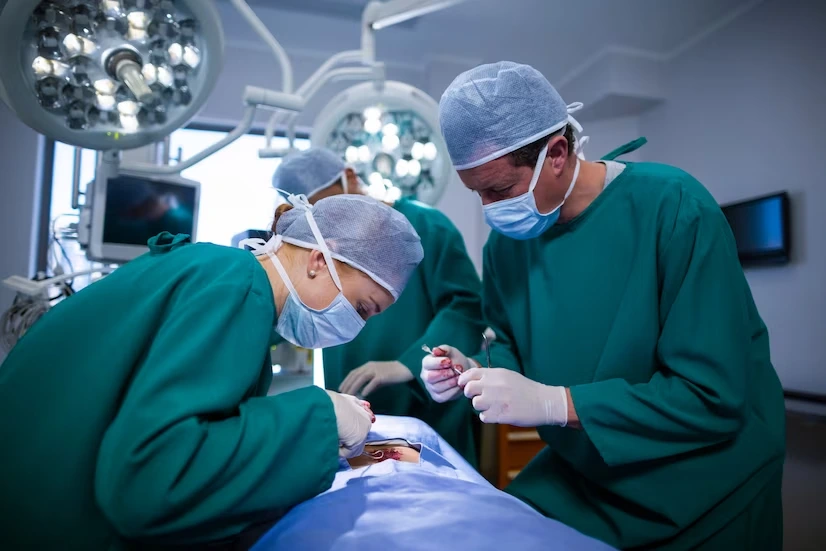The diet after hernia surgery plays a major role in helping a faster recovery. In case you have done an abdominal hernia surgery, or hernia repair surgery that involved your intestine, you have to pay extra attention to the food you are taking as it must not interfere with your post-operation healing progress.
Your doctor will instruct you on your diet before and after hernia repair. If you are not informed, you can consult a dietician.
Table of Contents
ToggleFoods to Eat After Hernia Surgery
Foods rich in water and fiber are usually recommended after hernia surgery. This is because the lack of physical activity after the surgery may increase the chances of constipation.
Also, there is a possibility for indigestion and difficulty in swallowing to occur after hernia repair. Therefore, foods that are easy to swallow and digest are recommended most of the time after hernia surgery, especially during the first few weeks after hernia repair.
Preferring foods with high nutritional value and low calories is the best dietary choice after hernia surgery.
12 to 24 Hours Following Surgery
Had you undergone the administration of anesthesia during the surgery it is better to avoid fatty foods after the surgery to prevent constipation.
You can begin with liquid-based foods like clear soups, broths, yogurt, milk, fresh juices, and so on. Avoid solid foods and noodles immediately after surgery. It is also important to drink an adequate amount of water.
Week One After Surgery
Continue with clear liquid foods like soups, broths, fresh juices, and milk. You can add decaffeinated tea or coffee after a word of advice from your dietician.
You can also add porridge, oatmeal, and some thick-liquid-based food to your diet.
Week Two and Three After Surgery
A few weeks after the surgery you can eat thick liquid-based and soft-cooked foods. You can include porridge, ripened fruits, boiled or soft scrambled eggs, tofu, paneer, mashed potatoes, carrots, beets, other well-cooked vegetables, and so on.
Week Four and Five After Surgery
Take in soft-cooked solid foods around this period. You can add meats and cheeses as well. But make sure that your meat is well-minced or ground. You can take white meats over red meats as they can aid in easy digestion.
You can also go with salads, toasts, softened cereals, and other nutrient-rich foods.
Week Six After Surgery
After a month of hernia repair, you can continue your regular diet upon consultation with your dietician and based on your recovery state.
Ensure that you yet avoid unhealthy processed and fast-cooked foods to prevent heartburn, acid reflux, and other ailments that could cause discomfort to you and hinder your recovery process.
Tips for Eating After Hernia Surgery
Some tips to help easy digestion of food after hernia repair include:
- Eat liquid foods in the initial days after hernia surgery to prevent straining the operated area, in case of abdominal hernia surgery.
- Take light meals.
- Drink water and eat food intermittently.
- Avoid stuffing yourself with water or food to prevent bloating of the stomach and difficult digestion.
- Eat well-minced foods.
- Chew your food completely before eating.
- Sit straight for at least half an hour before going to bed to prevent heartburn.
Foods To Avoid Complications
Some foods must be completely avoided after hernia surgery to prevent the escalation of complications including:
- Alcohol- it may cause infection and the surgical wounds to bleed.
- Tobacco- prevents muscle building after surgery decelerating the healing rate of incision wounds.
- Spicy foods- cause heartburn and acid reflux.
- Acidic fruits and vegetables- cause heartburn and acid reflux.
- Carbonated drinks- cause bloating of the stomach.
- Hard to chew snacks- may cause difficulty in swallowing.
- Rice and bread- eating in excess quantity may cause constipation.
Conclusion
Adopting an appropriate diet after hernia surgery is essential as a proper post-operation diet will help in speedy recovery.
You can consult with your healthcare provider if you would like to replace or add any food to your diet after hernia surgery.
Alongside adopting a proper diet make sure to avoid tobacco, vaping, and recreational drugs that could harm your recovery from the hernia surgery.
To know more about what to eat and what to not eat after hernia surgery, consult a hernia specialist.
Dr. K. Amilthan MBBS., MS., FMAS., FALS.
Heal Your Hernia Now:
- 15+ Years of Experience
- 3,000+ Surgeries
Your Journey to Wellness Begins with us.
FAQ's
Fruits that are high in water and fiber content are best to be eaten after hernia surgery. You can add melons, bananas, apples, and pears to your diet after hernia repair.
Yes, you can eat potatoes after hernia surgery. As you will have to eat soft foods for a few weeks after hernia repair you can include mashed potatoes in your diet.
Yes, you can eat almonds after hernia surgery. Since almonds have high nutritional values you can have them in moderate quantities.

Dr. Amilthan
Dr. Amilthan is a renowned laparoscopic hernia surgeon based in Chennai, with over 15+ years of experience in general surgery. He completed his MBBS and MS in General Surgery at Kilpauk Medical College and Government Royapettah Hospital in Chennai.
- All Posts
- Hernia Blog

Which Doctor should you consult for Hernia? You can Consult a general surgeon or a hernia specialist for evaluation and...

A hernia occurs when an organ or any other part of your body pushes through the muscle and surrounding tissue...

An inguinal hernia occurs when the organs push through and bulge against the weak muscles of the abdomen. An effective...

